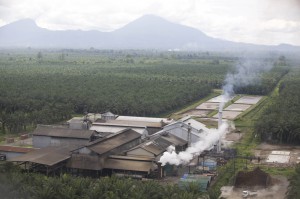Brighter Planet has just come out with a report that examines the climate impact of multiple factors along the entire supply chain of producing, transporting, packaging, preparing and discarding our food. The authors find that “In all, food represents 21% of the typical American’s total annual carbon footprint of 28.6 tons CO2e. Of course, that’s just the average – your personal foodprint depends on how much and what kinds of food you eat, where and how that food is produced, how it’s prepared, and what you do with the leftovers.”
Overall, the report is impressively broad in scope. Unfortunately, it neglects to examine the climate impact of deforestation for food production. I wonder how that would add to the carbon footprint of the average American diet – quite a bit, I’d expect!
Still, the authors’ recommendations for reducing your carbon “foodprint” are sound – and they would also contribute to reducing deforestation for food production:
• Eat fewer animals and more plants
• Buy unprocessed foods with less packaging
• Grow and harvest your own food
• Minimize car trips to restaurants and stores
• Cook at home more and eat out less
• Cook with efficient appliances and techniques
• Compost, recycle, and relish leftovers
Isn’t it nice that the same steps that are good for our health and our budget will also help the planet?